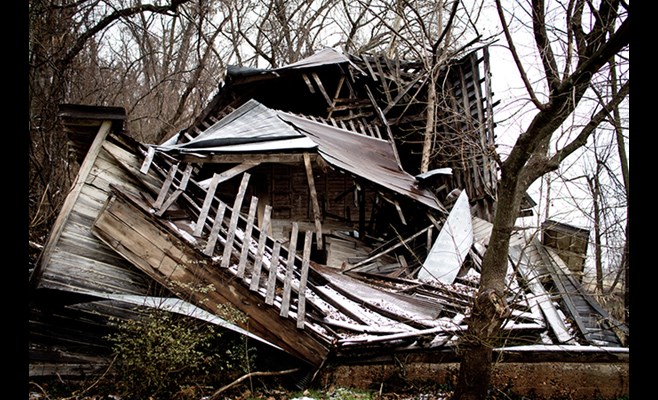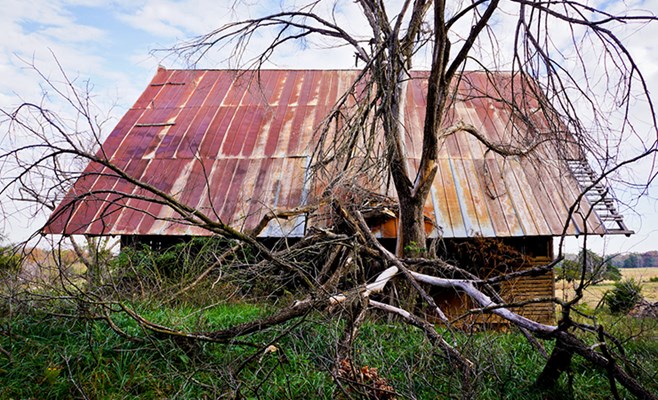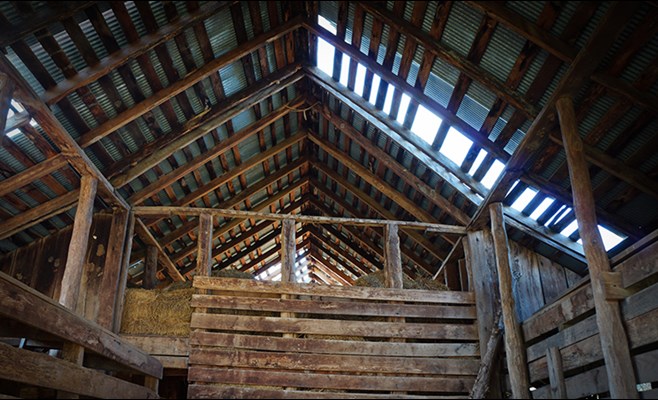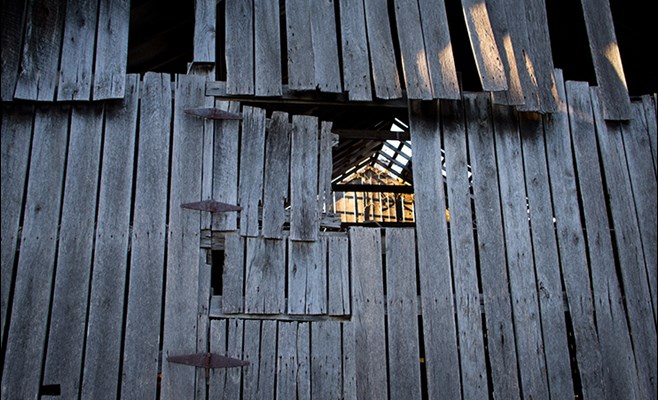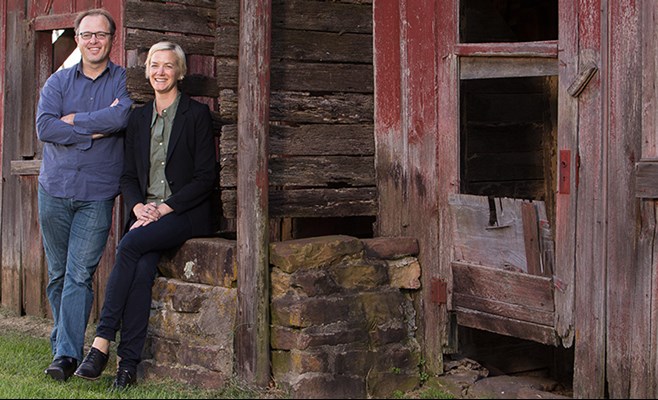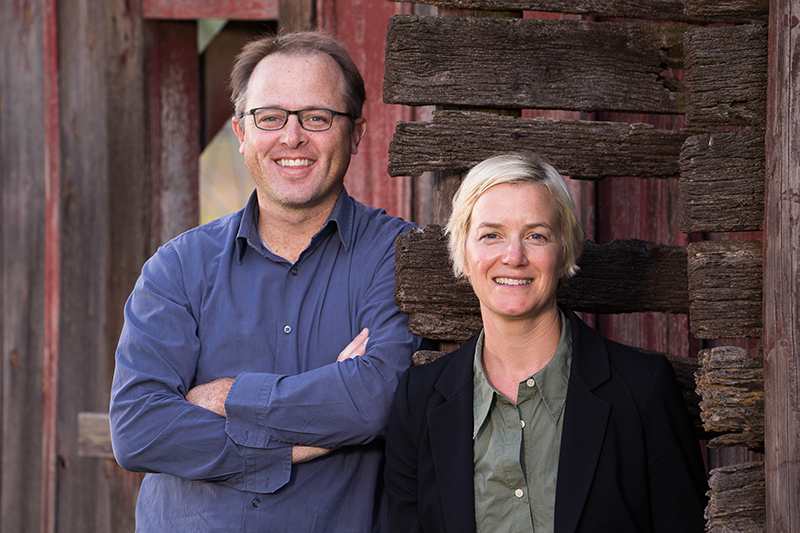A Sense of Lost Place, People and Culture
Frank Jacobus and Phoebe Lickwar remind us that we cannot separate the history of the social life of a place from the things made by and for the people who inhabited that place. Which probably explains why we feel punched in the gut when we see a barn set back from the highway, crumbling into a heap of rusted nails and weathered boards.
What is it about barns that conjure complex feelings, even – and very often, especially – for people whose families never farmed, or if they did, left the occupation generations ago? Do we feel this way about other obsolete objects, old phone booths, for example, or clunky 1980s-era VCRs?
“These barns – most of which will be gone in the next 20 years or so – are emblematic of something that’s painful for many of us to consider,” says Jacobus, assistant professor in the Fay Jones School of Architecture. “Not only are they material evidence of a way of life that no longer exists, the loss of work and life and the spirit of new settlement, but they also represent the massive cultural change we’ve gone through over the past 150 years.”
This social evolution, brought about by rapid urbanization, technological change and economic growth, force us to ask tough questions, Jacobus says. “Who are we? How have we evolved? How are we acting in the world? Are we moving in the right direction?”
Jacobus and Lickwar, assistant professor of landscape architecture in the Jones School, collaborated on “Barn Again,” an exhibit featuring 20 elegiac photographs by Lickwar and four informational “totems” by Jacobus that described the history of these crumbling structures in Northwest Arkansas and the cultural and economic factors that contributed to their disuse and eventual demise. The centerpiece of the exhibit was an installation piece – a small barn, 8 feet tall, 8 feet wide and 16 feet long – designed and built by assistant architecture professor Marc Manack and some of his current and former students.
Lickwar and Jacobus presented their research at the Council of Educators in Landscape Architecture conference and the Southeast Society of Architectural Historians, and Lickwar’s photographs have been shown in several juried exhibitions. Their collaboration culminated in “Falling Barns: Registers of Social and Economic Evolution in the Arkansas Ozarks,” an article on the project.
To learn more about the project, visit Research Frontiers. Lickwar’s barn photographs and other photographic exhibits may be viewed at her portfolio website.
Contacts
Matt McGowan, science and research communications officer
University Relations
479-575-4246,
dmcgowa@uark.edu
Headlines
PetSmart CEO J.K. Symancyk to Speak at Walton College Commencement
J.K. Symancyk is an alumnus of the Sam M. Walton College of Business and serves on the Dean’s Executive Advisory Board.
Faulkner Center, Arkansas PBS Partner to Screen Documentary 'Gospel'
The Faulkner Performing Arts Center will host a screening of Gospel, a documentary exploring the origin of Black spirituality through sermon and song, in partnership with Arkansas PBS at 7:30 p.m. Thursday, May 2.
UAPD Officers Mills and Edwards Honored With New Roles
Veterans of the U of A Police Department, Matt Mills has been promoted to assistant chief, and Crandall Edwards has been promoted to administrative captain.
Community Design Center's Greenway Urbanism Project Wins LIV Hospitality Design Award
"Greenway Urbanism" is one of six urban strategies proposed under the Framework Plan for Cherokee Village, a project that received funding through an Our Town grant from the National Endowment for the Arts.
Spring Bike Drive Refurbishes Old Bikes for New Students
All donated bikes will be given to Pedal It Forward, a local nonprofit that will refurbish your bike and return it to the U of A campus to be gifted to a student in need. Hundreds of students have already benefited.
